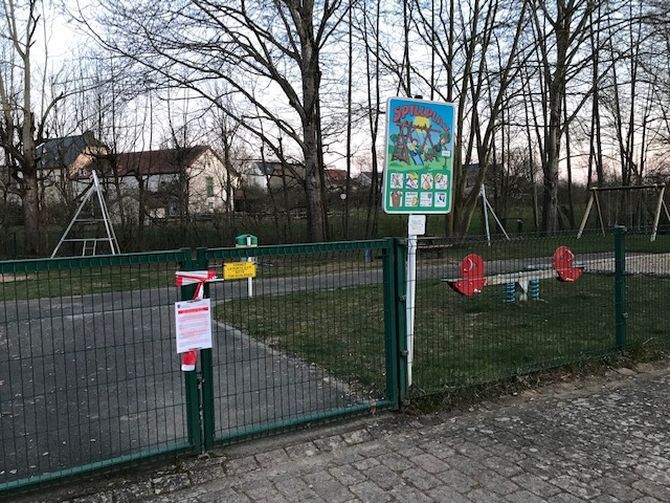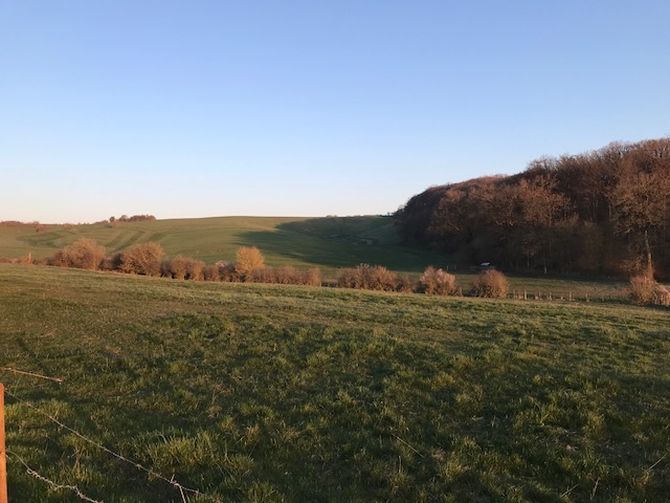'Makes one wonder how much of government will be left standing when this is finally over.'

People of Indian Origin and NRIs describe the impact coronavirus is having on their lives.
Part 1 in the series: 'Our world is coming to a complete standstill'
Part 2 in the series: 'Indian Americans collected 6 months of groceries'
Part 3 in the series: 'Coronavirus: 'These are strange times'
Part 4 in the series: 'This virus has taken over the world'
Part 5 in the series: 'The virus has always felt at arm's length from me'
Part 6 in the series: 'We are now the eye of the storm'
Part 7 in the series: 'As a healthcare worker I feel the continuous gratitude of people'
Kavita Thomas, Ernster, Luxembourg
I can't remember, now, when exactly I realised that this virus would actually have an impact on me -- China seemed awfully far away from my home in Luxembourg.
Plus, I thought: "We've been here a lot in the past and it has always been contained... It's not Ebola after all."
Then work started pushing me to consider how to split my team up and how we could reduce people's exposure to one another.
"What would be the worst-case scenario?" I was asked. "Can your department deliver if 30 to 40 per cent of your team gets sick?"
Even then, I thought -- Just good planning.
It started to get slightly more real when my son's Europe-wide swimming competition, that he worked hard all season for, was cancelled. All his intra-school warm-up competitions leading up to it were also cancelled. He was heart-broken.

March 10 was a "global" work from home test and I've been at home since then. I was irritated when I was pushed to move more and more people to work from home, but by March 16, 100 per cent of my team was working from home.
On March 17, the Luxembourg prime minister placed the country into a state of emergency for to up three months -- schools, pools, bars, restaurants -- all shut and signed certification required to cross borders into Germany, France or Belgium.
My son's school closed until after the Easter holidays and virtual lessons started instead.
For the first time, my entire nuclear family was (and still is) working and studying from home, creating interesting challenges on every level -- personal and professional.

Multi-tasking has taken on a new meaning -- with no housecleaner, an 11-year-old shouting that his video conferencing isn't working and your mobile ringing because you're about to miss your own conference call!
In my second week working from home full-time, things started settling down.
My family is finding new routines that work for us. I'm getting to spend more time than ever with my almost-12 (going on 15) year old. And my husband makes sure I take a real lunch break, instead of my usual eat-at-my-desk-as-fast-as-possible number.
I even manage to get the laundry done during the day.
On March 24, I discovered that my neighbour and his entire family has been diagnosed with COVID-19. They live two doors down from us -- and I found out from Facebook.
I don't know what's happening to them, whether they've been quarantined or are self-quarantining. If they are home, how are they getting supplies and groceries?

Whilst the statistics are scary and the virus certainly doesn't bring out the best in people -- the paranoia, the panic stockpiling of groceries, having people look at you askance if you sneeze -- it is a fascinating event to experience.
Since when has toilet paper become an essential?
People are scared and I am too -- with the news just breaking of two teenagers dying, neither had any underlying illnesses, which means no one is 'safe'.
Now Boris Johnson has the virus and Angela Merkel is in isolation -- makes one wonder how much of government will be left standing when this is finally over.
The fear, though, is balanced by interest.

Stockmarkets have crashed in a spectacular way, most European companies have had their BCPs (business continuity plans) tested in the most brutal way.
The world will never look the same once COVID-19 is under control.
Businesses will fail and consumer patterns will change, maybe permanently and no one knows what impact that will have.
'Normal' may never come back and we are nowhere close to the end of this. What will happen when groceries and supplies start to falter?
For now, I try to take it one week at a time and look on the bright side of things. I'm safe, so is my family and that has to be enough.
All images: Kind courtesy Kavita Thomas
Dear Reader:
Are you someone of Indian origin living through these challenging times somewhere abroad?
We would like to hear how you are coping and what's happening outside your window.
How it has been for you emotionally and practically?
We would like to have your observations and perspectives.
Please share your responses with us and we will publish your account right here on Rediff.com.
Do write in to us at news@rediff.co.in (Subject: Living abroad through COVID-19) along with your NAME, AGE and LOCATION.
Please don't forget to share a photograph of yourself and any significant pictures you have taken of your environment.









